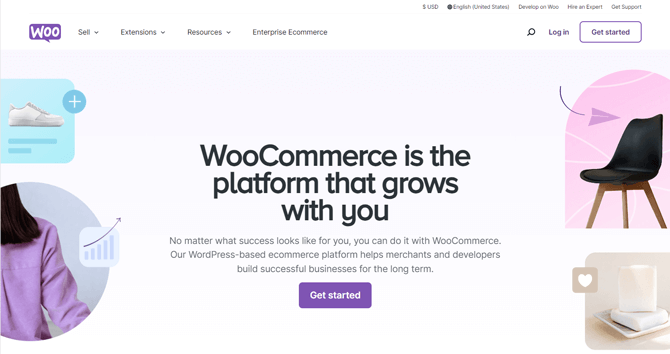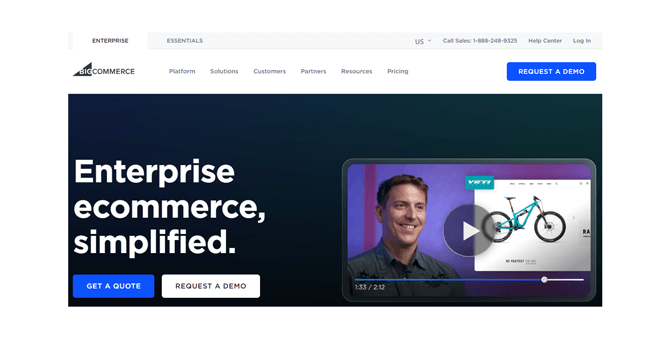In today’s booming online market, with 2.71 billion global shoppers as of 2024, equating to 33% of the world’s population. Choosing the best wholesale eCommerce platform is crucial for business success. This guide explores the top three platforms that stand out in terms of features, scalability, and performance.
By examining these leading contenders, you’ll gain insights into which platform best aligns with your wholesale business needs. This will help you navigate the competitive wholesale industry with confidence.
Key takeaways
- Wholesale eCommerce platforms offer specialized features such as bulk ordering, custom pricing, and account management.
- These platforms integrate with various wholesale business systems like CRM and ERP software, streamlining operations and improving efficiency.
- Wholesale eCommerce platforms provide scalable solutions for increasing product lines, customer bases, and transaction volumes.
- Security and compliance are prioritized, with platforms offering advanced protection features to safeguard sensitive business and customer information.
What are Wholesale eCommerce Platforms?
Wholesale eCommerce focuses on selling products in bulk to other businesses instead of individual consumers. In 2023, global retail eCommerce sales reached about $5.8 trillion. This shows how important and widespread online shopping has become.
Wholesale eCommerce platforms are key in this growing market, helping businesses run smoothly and connect with buyers effectively. Essentially, wholesalers act as intermediaries between manufacturers and retailers.
For retail eCommerce businesses, this involves buying large quantities of products from wholesalers. This approach allows eCommerce businesses to access various suppliers easily, compare prices, and diversify their product offerings. It also benefits manufacturers by relieving them of the need to find individual sellers to distribute their products to end consumers.
Why is It Important to Choose the Right Platform for Your Wholesale Business?
Choosing the right platform for your wholesale business is crucial for success and efficiency. Here are some key reasons:
- Efficiency and Productivity: The right platform improves inventory management and order processing for efficiency.
- Scalability: A good platform grows with your business, handling increased volume and products.
- Integration Capabilities: Integration with ERP and CRM systems enhances data accuracy and automation.
- Customer Experience: The right platform offers custom pricing and bulk ordering for better customer experience.
- Cost Management: Choosing the right platform controls costs with transparent pricing and fewer fees.
Recommended Blogs for You:
👉 What Is the Wholesale Business Model: Strategies for Success
👉 How To Start a Wholesale Fashion Shoes Business
👉 Wholesale Accessory Market 101: Startup Guide for New Retailers
👉 How to Start a Candle Wholesale Business: A Beginners Guide
👉 How To Choose The Best Coffee Bean Wholesale Supplier For Your Business
Key Factors to Consider When Choosing a Wholesale eCommerce Platform
When selecting a wholesale eCommerce platform, it’s essential to evaluate several key factors to ensure it aligns with your business needs and goals:
- Scalability and Flexibility: Select a platform that can expand to meet your company’s needs as they change over time. Scalability ensures that the wholesale platform can handle increased order volumes and expanded product lines. It does this without compromising performance or requiring a complete overhaul.
- Inventory Management and Order Processing: Effective inventory management and streamlined order processing are crucial for maintaining operational efficiency. Look for features that support real-time tracking, automated reordering, and efficient order fulfillment to minimize errors and delays.
- Integration with Other Business Systems: A platform that integrates seamlessly with your existing business systems, such as ERP and CRM, enhances data accuracy. This integration also improves workflow efficiency by streamlining processes and reducing manual errors. Integration reduces manual data entry and helps maintain a unified view of your operations.
- B2B Features and Capabilities: Ensure the platform offers features specifically designed for B2B transactions, such as bulk ordering, custom pricing, account management, and multiple user roles. These features meet the specific requirements of wholesale buyers and make transactions easier.
- Pricing and Fees: Evaluate the platform’s pricing structure, including setup fees, subscription costs, and transaction fees. Transparent pricing helps you budget effectively and avoid unexpected costs, ensuring the platform offers good value for your investment.
Top 3 Best Wholesale eCommerce Platforms
WooCommerce
WooCommerce is a leading open-source eCommerce wholesale platform exclusively for WordPress websites. The WooCommerce plugin allows businesses to establish an online store seamlessly. They can market and sell products, securely process payments, manage shipping, and analyze eCommerce performance.

As an open-source solution with extensive third-party integrations, WooCommerce is renowned for its high customizability. Due to its flexibility and comprehensive feature set, it is particularly popular among small to medium-sized businesses. With over 3.9 million online stores powered by WooCommerce, it has been recognized on Forbes’ list of the Best eCommerce Platforms.
Key features
Here are some key WooCommerce features:
- Extensive theme and plugin options for tailor-made solutions.
- Full control over design and functionality of the store.
- Open-source platform allows for deep customization and flexibility.
- Supports a wide range of payment gateways, including PayPal.
- Extensions are available for additional payment methods and options.
- Strong SEO features, leveraging WordPress’s capabilities for better visibility.
- Integration with SEO plugins like Yoast SEO for optimization.
- Product reviews and ratings enhance customer trust and engagement.
Pricing plans:
It is free from the WordPress repository.
Shopify
Shopify is a feature-rich eCommerce platform that makes it easy for anybody to launch, run, and grow a company. It enables users to set up an online store, manage sales, advertise to clients, and take payments both online and offline.

Shopify’s standing as a leader in commerce is built on the insights and feedback from millions of business owners. By catering to both solopreneurs and large enterprises, Shopify has developed a suite of features and products that drive modern businesses. It will influence the future of commerce.
Key features
Key features of Shopify:
- Shopify’s user-friendly interface allows you to set up your store quickly.
- Shopify includes inventory management, shipping options, and sales channels for efficiency.
- Built-in SEO and marketing tools help increase your store’s visibility and traffic.
- Shopify ensures top-notch security with PCI compliance and SSL certification to protect data.
- A wide range of professionally designed themes is available for customization.
- Extensive app store with numerous integrations and extensions.
- Supports over 100 payment gateways, including Shopify Payments.
- Shopify offers 24/7 support via live chat, email, and phone for assistance.
Shopify Pricing plans and options
One of the cheapest website builders, Shopify offers two different types of plans.
- Monthly plans
- Yearly plans
The plans are as follows:
- Basic – $25/mo (billed monthly) & $19/mo (billed yearly)
- Shopify – $65/mo (billed monthly) & $49/mo (billed yearly)
- Advanced – $399/mo (billed monthly) & $299/mo (billed yearly)
- Plus – $2300/mo
There are some alternative plans as well. These are:
- Starter – $5/mo
- Retail – $89/mo
- Shopify Plus – Custom
BigCommerce
BigCommerce is a paid, hosted eCommerce solution that enables business owners to create and manage online stores to sell their products. As a hosted platform, BigCommerce operates on its own servers, eliminating users needing to purchase web hosting or install software on their computers.

Recognized as a top-rated eCommerce website builder, BigCommerce offers various tools designed to drive sales and boost revenue. Although it is a powerful eCommerce platform, it’s also essential to consider other options. Our hands-on BigCommerce review aims to help you determine if it best fits your business needs.
Key features
Key features of BigCommerce:
- Offers a diverse selection of professional templates that can be customized easily.
- Comprehensive built-in eCommerce tools for complete functionality.
- User-friendly editor allows for simple design changes without any coding skills.
- Integrates seamlessly with multiple sales channels like Amazon and social media platforms.
- Supports dropshipping with built-in tools and easy integration with suppliers.
- Strong SEO tools built into the platform.
- Supports multiple currencies and automatically converts prices based on customer location.
- Advanced marketing features, including abandoned cart recovery.
BigCommerce Pricing plans
The plans are as follows:
- Standard – $39/mo (billed monthly) & $29/mo (billed yearly)
- Plus – $105/mo (billed monthly) & $79/mo (billed yearly)
- Pro – $399/mo (billed monthly) & $299/mo (billed yearly)
- Enterprise – Custom
Comparison of the Top 3 Wholesale eCommerce Platforms
Here’s a side-by-side comparison of the top three wholesale eCommerce platforms: WooCommerce, Shopify, and BigCommerce. This comparison highlights key features and benefits to help you choose the best platform for your wholesale business.
| Feature | WooCommerce | Shopify | BigCommerce |
| Ease of Use | Moderate technical knowledge required | User-friendly interface. | More complicated interface |
| Customization | Highly customizable with plugins and themes. | Extensive customization options | Customization options available |
| Integration | Strong community support for integrations | Wide range of integrations available. | Robust integration capabilities |
| Analytics and Reporting | Basic analytics, integration with third-party tools | Robust built-in analytics features | Advanced analytics tools within the platform |
| Customer Support | Support primarily through community forums | 24/7 customer support via chat, email, and phone. | Dedicated account management and support |
Pros and Cons of Each Platform
Shopify
Pros:
- Shopify offers a wide range of features suitable for various eCommerce needs.
- Integrates with social media, marketplaces, and other sales channels.
Cons:
- Shopify charges fees if you use payment gateways other than Shopify Payments.
- Switching themes can involve reformatting content and adjusting settings.
WooCommerce
Pros:
- Offers complete control over your site and its expenses as it’s a self-hosted solution.
- SEO capabilities are robust, especially with various plugins available.
Cons:
- Setting up and maintaining a WooCommerce site can be complex and requires technical know-how.
- Many advanced features need separate paid plugins, adding to the overall cost.
BigCommerce
Pros:
- Comes with many built-in features that reduce the need for third-party apps.
- Offers strong SEO tools to help improve search engine rankings.
Cons:
- Some users find the editing interface less intuitive and harder to navigate.
- BigCommerce does not provide a dedicated mobile app for managing the store on the go.
Frequently Asked Questions
Which platform is best for wholesale business?
Although eCommerce platforms differ in their level of success, Shopify, WooCommerce, and BigCommerce are the most popular. Select the one that best meets your demands to guarantee optimal performance from your online store.
What is the most successful eCommerce platform?
The success of an eCommerce platform varies, with Shopify, WooCommerce, and BigCommerce leading the pack. To ensure your online store performs at its best, choose the option that best suits your needs.
Which country has the biggest wholesale market?
China hosts the largest wholesale market globally, offering a wide range of products at competitive prices. Explore markets like Yiwu and Guangzhou for diverse wholesale options to meet your business needs.
Which eCommerce platform is best for beginners?
Platforms like Shopify, Wix, or Squarespace offer user-friendly solutions for eCommerce beginners. These platforms are known for their intuitive interfaces and essential tools, simplifying the process of launching an online store and making them ideal entry points into the eCommerce world.
Is Wholesale eCommerce the Same as B2B?
Wholesale eCommerce and B2B transactions intersect in selling bulk goods to businesses. While both involve business-to-business sales, Wholesale eCommerce focuses on supplying products to retailers for resale, while B2B encompasses a broader scope of commercial interactions beyond mere product transactions.
Conclusion
In conclusion, wholesale eCommerce platforms play a pivotal role in the modern business landscape by facilitating bulk transactions between businesses. They offer specialized features tailored to B2B needs, such as custom pricing and bulk ordering, while integrating seamlessly with other business systems to streamline operations.
These platforms are designed to scale with business growth and support multi-channel selling, enhancing reach and sales opportunities. Additionally, robust security measures ensure that sensitive data remains protected. Choosing the right wholesale eCommerce platform can significantly impact operational efficiency, customer satisfaction, and overall business success.